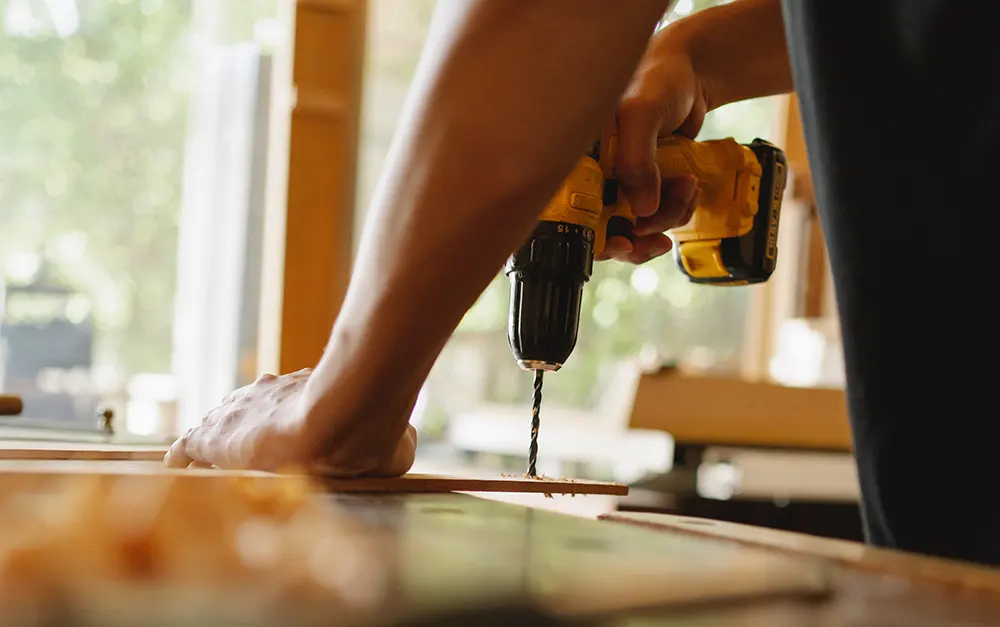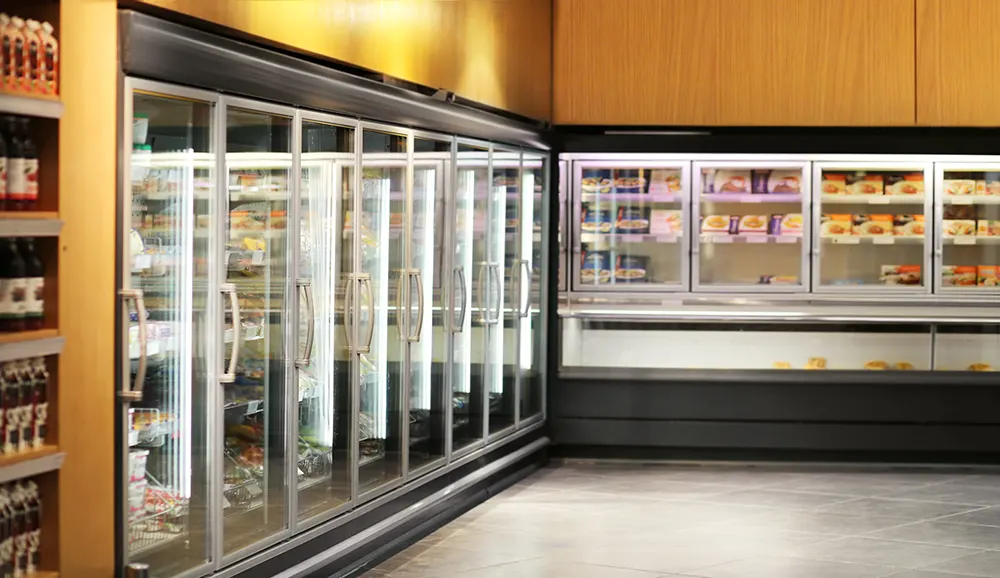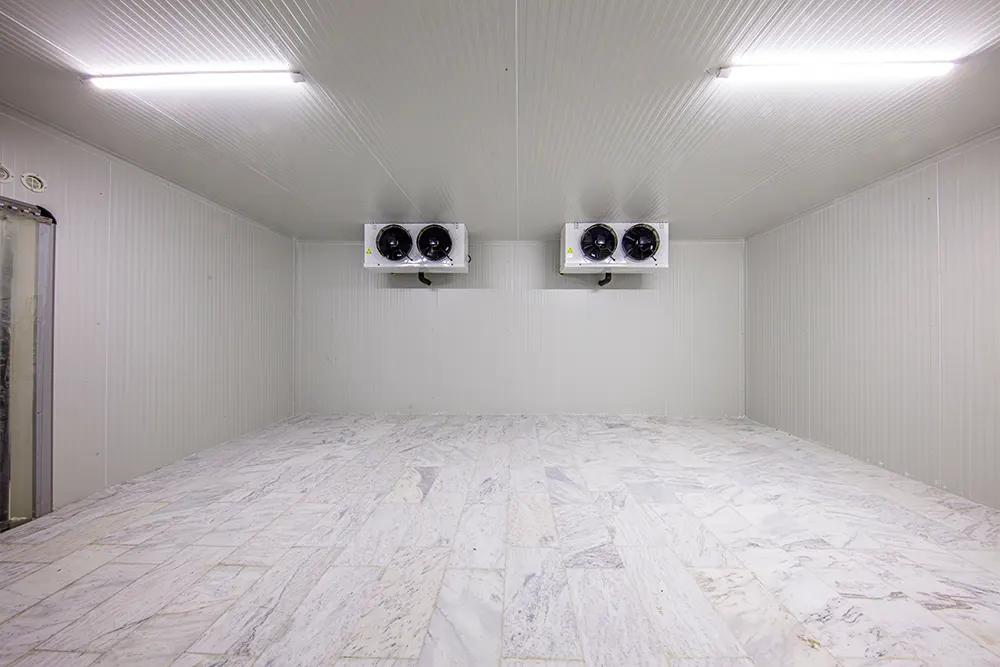Phase Change Material is a material that with tweaks to its formula can very accurately determine the melting/solidification point. As such, it is often used in cooling & heating elements that, due to high energy storage levels, can ensure a stable temperature.
PCM technology is particularly used and well-known within the medicinal and food transport sectors, but is now on the increase in appliances too. For instance, in setting up cold stores or warm rooms, and when optimising energy consumption in supermarket chilled food sections.
The ways in which PCM can save on energy and reliably regulate temperature are innumerable. How much spoilage will you prevent by using PCM?
The thermal storage is highest around the solidification/melting point
Remains at the temperature of the melting point until PCM completely changes phase
By adapting the recipe according to proven standards
No on-site (electrical) cooling or heating required
Constant, proven effectiveness for vital sectors, among others
Extended use of renewable energy through storage and reuse.
Organic Mixture
5°C
271 kJ/kg
Transparent liquid @25 °C
Hydrated Salts
-30°C
264 kJ/kg
Watery suspension liquid @25 °C



PCM as an independent back-up in a cold room
A cold store is the ideal place to store temperature-sensitive, perishable items like food and pharmaceutical products such as vaccines at the right temperature. Cold stores, or cold rooms, use energy and should the electricity supply fail for whatever reason, the temperature inside can only be maintained for 2 hours. In this case study we discuss how Phase Change Material can extend this ‘back-up period’ to 32 hours, giving ample time to ‘save’ the temperature-sensitive products. Plus, how this can result in an annual energy saving per cold room of around €1.944!
+31 (0)33 457 19 82
in**@******ck.nl
Industrieweg 11b | 1566 JN Assendelft
